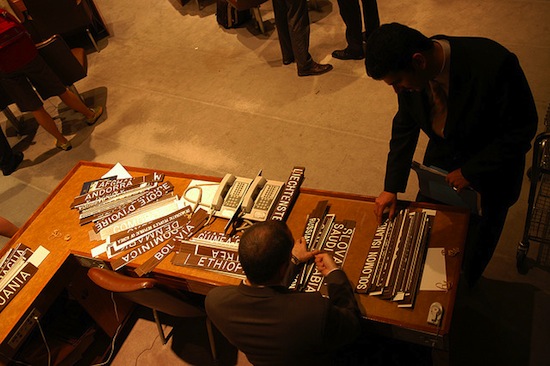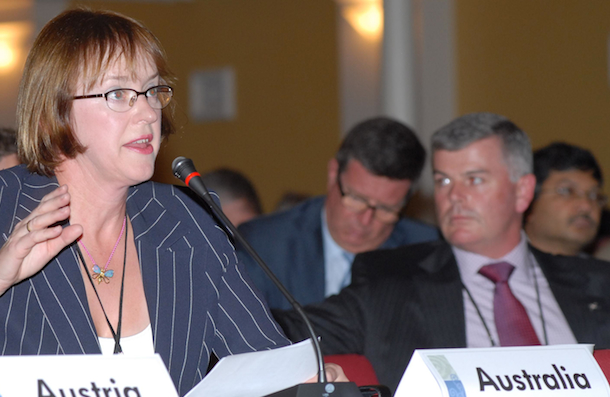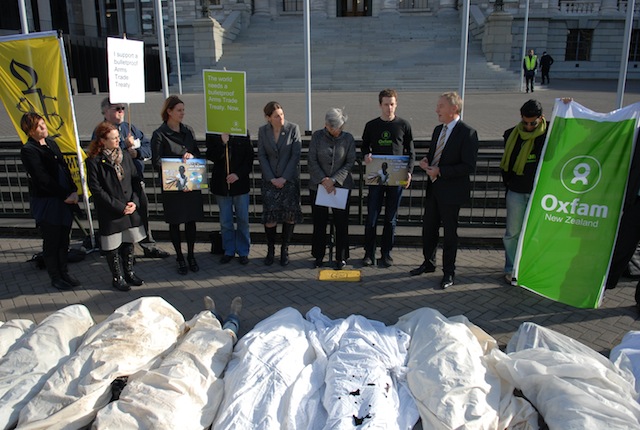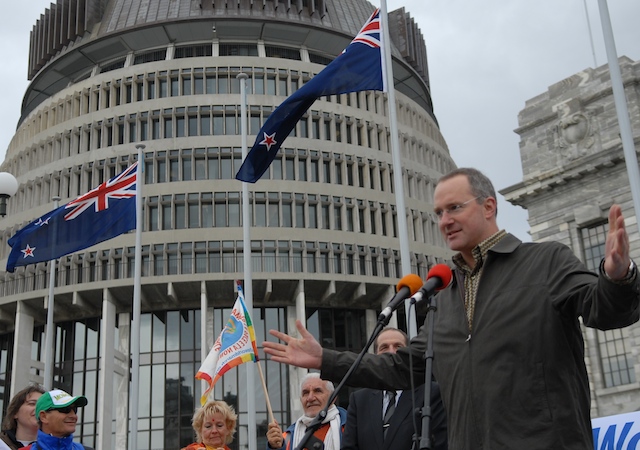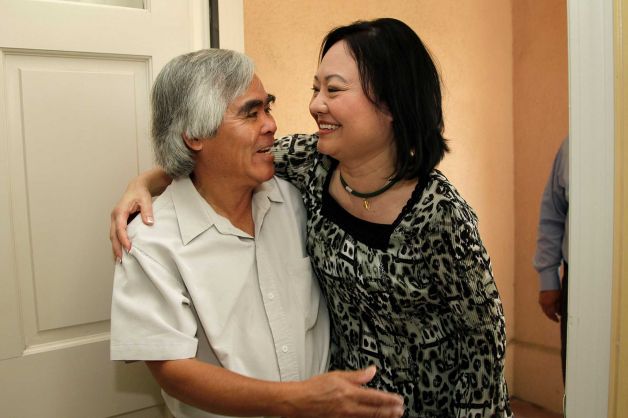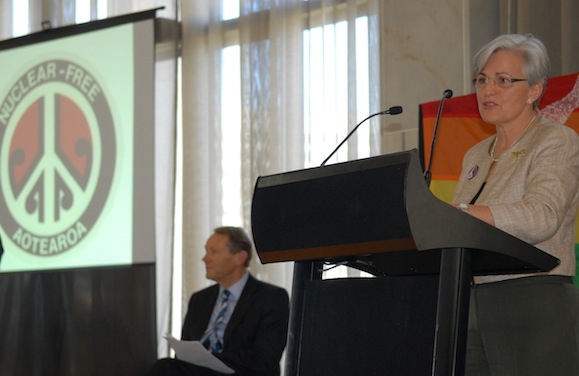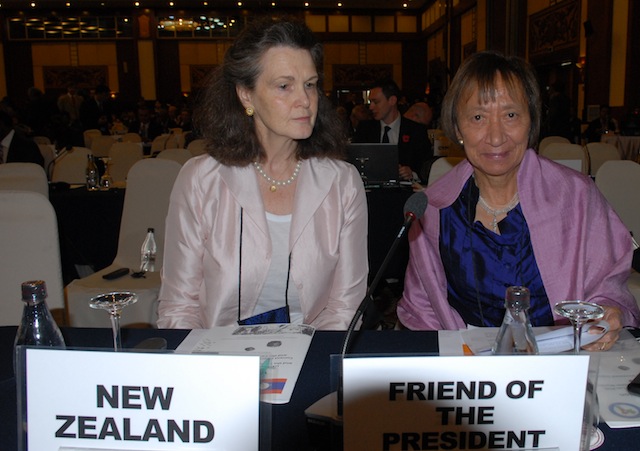On Monday, disarmament diplomats are convening in the basement of the United Nations in New York to discuss arms transfers for the second time this summer, this time for the Second Review Conference of the 2001 UN Programme of Action to Prevent, Combat and Eradicate the Illicit Trade in Small Arms and All Its Aspects. Continue reading A decade on, any action on arms transfers ?
|
||||
|
Australia’s long-awaited ratification of the Convention on Cluster Munitions came a step closer on Tuesday, 21 August 2012, when the Senate approved legislation to implement the convention. The Criminal Code Amendment (Cluster Munitions Prohibition) Bill 2010 passed the Senate by a vote of 29 to 10 and is expected to be signed into law shortly. Then Australia will deposit its instrument of ratification to the Convention on Cluster Munitions with the United Nations in New York, possibly in advance of the convention’s Third Meeting of States Parties, which opens in Oslo, Norway on 11 September 2012. Continue reading Weak law sets bad precedent on cluster bombs Survivors, or “Hibakusha,” of the atomic bombs dropped on Hiroshima and Nagasaki during World War II are now aged in their 80s and 90s, but they are still traveling the world to promote their call for a nuclear-free Japan and for the abolition of nuclear weapons. Over the past week, New Zealanders have marked the 67th anniversary of Hiroshima and Nagasaki with a speakers tour by two visiting Hibakusha: Ms. Shigeko Sasamori and Mr. Michimasa (Michi) Hirata. Continue reading Leadership requested on nuclear weapons ban On Friday evening (27 July 2012) at precisely the same time as the spectacle of the Olympics opening ceremony was kicking off in London, across the Atlantic in the basement of the United Nations another spectacle was unfolding as talks aimed at regulating arms transfers collapsed. The president of diplomatic negotiations tasked with concluding the proposed Arms Trade Treaty, Ambassador Roberto García Moritán of Argentina, declared defeat and closed the conference without adopting the final treaty text, stating, “I take full responsibility, and apologize deeply for not having brought you to a better ending.” Continue reading Draft arms trade treaty moves on, but where? A private member’s bill to ban depleted uranium (DU) was defeated in the New Zealand Parliament during its first debate on 27 June 2012 by a vote of 60-60, failing to achieve the positive majority necessary to forward it for Select Committee review. The draft legislation was opposed by the governing National and Act parties, but failed because the Maori Party, which was supporting the bill, was only able to cast two of its three votes. Continue reading New Zealand depleted uranium ban fails by one vote Established in 1979 as the main multilateral disarmament negotiating forum for the international community, the Conference on Disarmament (CD) this week held a debate on its future status. Since the CD concluded the Comprehensive Test Ban Treaty in 1996, it has not been able to resume serious substantial work on any issue. Those states wanting progress on nuclear disarmament and those wanting to negotiate on fissile material have not been able to agree on what to do, let alone how to do it. Continue reading The Conference on Disarmament’s problem The photo of the naked, crying little girl is unforgettable. On 8 June 1972, Nick Ut of Associated Press photographed nine-year-old Kim Phuc running down a road in Vietnam after an air strike on her village using incendiary weapons. According to AP, the naked sticky napalm had “melted through her clothes and layers of skin like jellied lava.” In the decade that followed Kim Phuc’s injury, the shocking consequences that napalm inflicted on civilians in Vietnam and elsewhere became major factors motivating the adoption of new international humanitarian law. In 1977 nations agreed to strengthen protections to victims of armed conflicts through the Additional Protocols to the Geneva Conventions. In 1980, the Convention on Conventional Weapons (CCW) was concluded, including a protocol restricting the use of certain incendiary weapons. Continue reading From napalm to white phosphorus On 31 May 2012, the New Zealand House of Representatives approved a cross-party parliamentary motion celebrating the 25th anniversary of the adoption of the New Zealand Nuclear Free Zone, Disarmament, and Arms Control Act. New Zealand became one of the first countries in the world to legislate a ban on nuclear weapons when the nuclear-free law was adopted on June 8, 1987. The Act establishes New Zealand as a “nuclear free zone” and prohibits nuclear weapons and nuclear-powered vessels from entering New Zealand’s territorial waters and airspace. The anti-nuclear stance was taken under the leadership of Prime Minister David Lange in the face of strong international opposition, especially from the United States, which downgraded its defense relationship with New Zealand as a result. (24 May 2012) What better day to begin this blog on humanitarian disarmament than the International Women’s Day for Disarmament, a day started in Europe in the early 1980s as hundreds of thousands of women organized against nuclear weapons and the arms race. Let’s look at women who have contributed to peace and disarmament… Starting at the top, a number of United Nations officials work to advance humanitarian disarmament, including UN Women Director Michelle Bachelet, UN Disarmament Representative Angela Kane, UN Mine Action Service Director Agnes Marcaillou, and UNDP Administrator Helen Clark. In several countries, women officials are in charge of policy on humanitarian disarmament issues. |
||||
|
Copyright © 2025 Ministry for Disarmament - All Rights Reserved Powered by WordPress & Atahualpa |
||||

